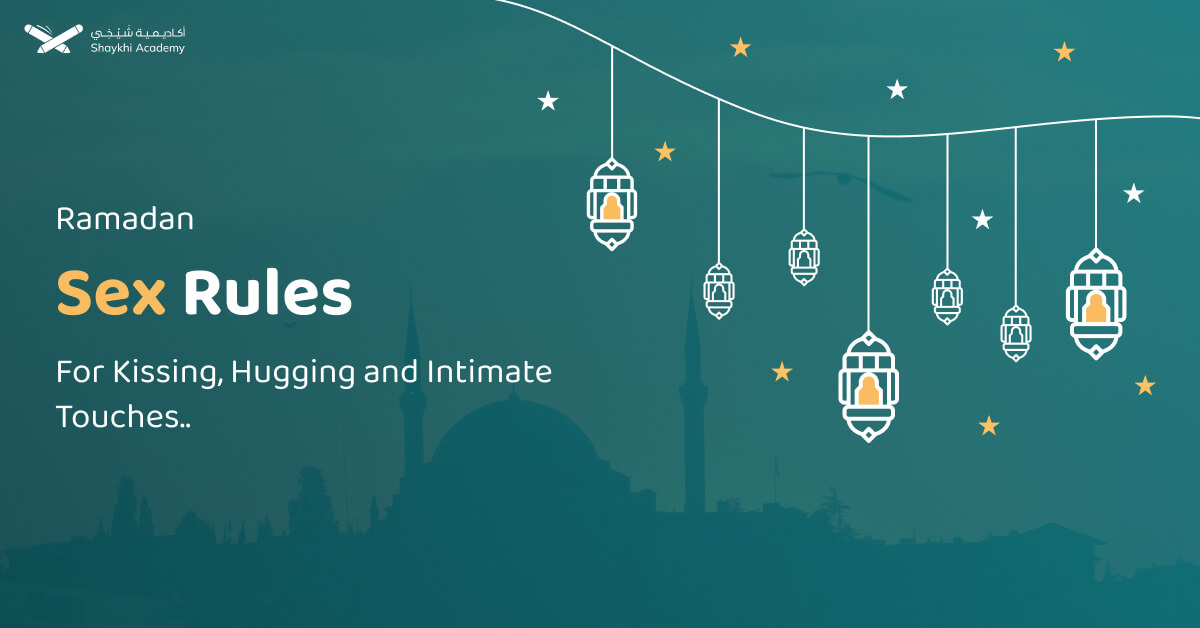Kissing while fasting in Ramadan is allowed unless it leads to actions that break the fast, like ejaculation or swallowing saliva. Affection within marriage is permissible with self-control, but intimacy outside marriage is always forbidden in Islam.
Kissing During Ramadan:
Kissing one’s spouse while fasting during Ramadan is generally permissible, as the Prophet Muhammad (peace be upon him) did so while fasting. However, if it leads to desire and the possibility of breaking the fast, it becomes discouraged, especially for those who struggle with self-control.
If kissing results in ejaculation (mani), the fast is broken and must be made up, but there is no expiation (kaffarah) according to most scholars. If only pre-ejaculatory fluid (madhy) is released, the fast remains valid.
Inserting the tongue into the spouse’s mouth follows the same ruling as kissing—permissible unless it leads to breaking the fast. However, swallowing the spouse’s saliva invalidates the fast.
Does Kissing Break Your Fast?
Kissing itself does not break the fast. However, if it leads to passionate feelings or actions that result in swallowing saliva or other fluids, then the fast would be broken. Scholars recommend exercising caution and avoiding anything that might lead to breaking the fast unintentionally.
Kissing one’s spouse during fasting hours in Ramadan is permissible as long as it does not lead to actions that invalidate the fast, such as intercourse or ejaculation. Muslims are encouraged to exercise caution and mindfulness to ensure the sanctity of their fast is preserved while maintaining intimacy within the bounds of Islamic teachings and principles.
It was narrated that Umar bin al-Khattab said:
I was in good spirits one day and kissed (my wife) when I was fasting. I came to the Prophet ﷺ and said: I have done something serious. I kissed (my wife) when I was fasting. The Messenger of Allah ﷺ said: “What do you think if you rinse your mouth with water when you are fasting?` I said: There is nothing wrong with it. The Messenger of Allah ﷺ said: “Then why (are you worried)?`
(Grade: Sahih, Musnad Ahmad).
While kissing one’s spouse is allowed during fasting in Ramadan under certain conditions, kissing anyone of the opposite gender other than one’s spouse is strictly prohibited both during Ramadan and at all times in Islam.
This emphasizes the sanctity of marital relations and the importance of adhering to Islamic principles regarding physical intimacy. Islam promotes modesty, respect for boundaries, and the preservation of chastity, highlighting the necessity of upholding moral and ethical conduct in all aspects of life, including relationships and interactions.
Can You Kiss Your Wife’s Private Parts in Islam?
Islam permits intimacy between spouses, but acts like kissing private parts are discouraged by many scholars due to considerations of cleanliness and respect. It is recommended to follow Islamic principles of modesty and consult a knowledgeable scholar for further guidance.
Can I Hug My Wife During Fasting Hours in Ramadan?
Yes, you can hug your wife during fasting hours in Ramadan. It is permissible for a husband to hug, kiss, and embrace his wife during fasting hours in Ramadan as long as he can control his desires and refrain from actions that would invalidate the fast, such as ejaculation.
This permission is based on the example of Prophet Muhammad (peace and blessings be upon him), who used to display affection towards his wives while fasting.
‘A’isha (Allah be pleased with her) reported: Allah’s Messenger (ﷺ) used to kiss (his wives) while fasting and embraced (them) while fasting; but he had the greatest mastery over his desire among you.
(Sahih Muslim)
However, if there is a fear of engaging in forbidden actions due to arousal, it is disliked to engage in such physical intimacy. If ejaculation occurs, the fast remains valid, but the individual must refrain from eating or drinking for the rest of the day and make up for the missed fast later.
While physical contact with one’s spouse is permissible, touching individuals of the opposite gender outside of marriage is prohibited. This prohibition serves to uphold moral standards, preserve the sanctity of relationships, and enhance the spiritual focus of Ramadan.
Read a full Guide on Ramadan Rules for Unmarried Couples, Girlfriends, Boyfriends, and Interactions with the Opposite Gender.
Shaykhi Academy – Your Gateway to Quran Memorization
In line with the spirit of Ramadan and the quest for spiritual elevation, Shaykhi Academy a dedicated platform designed to facilitate Quran memorization with ease and efficiency.
Are you a busy adult seeking a convenient way to deepen your connection with the Quran? Look no further than Shaykhi Academy’s Learn Quran Online for Adults course. Our flexible and personalized instruction, led by qualified tutors, ensures you master fundamental recitation skills, Tajweed rules, and even Quran memorization—all from the comfort of your home.
Conclusion:
Kissing one’s spouse while fasting during Ramadan is allowed but requires self-restraint. The Prophet Muhammad (peace be upon him) kissed his wives while fasting, demonstrating its permissibility. However, if it stirs strong desires or leads to ejaculation, it becomes discouraged, as it may put the fast at risk.
Swallowing a spouse’s saliva invalidates the fast, and if ejaculation occurs, a makeup fast is required, though no expiation is necessary. Hugging and affectionate gestures are also permitted, provided they do not lead to actions that break the fast. Scholars advise caution, particularly for those who struggle with self-control.
Islam encourages intimacy within marriage while maintaining boundaries that uphold modesty and discipline. While kissing and embracing are permissible, any physical contact outside of marriage remains strictly prohibited.
The teachings of Islam emphasize chastity, respect, and the sanctity of relationships, ensuring that interactions align with ethical and spiritual values. The month of Ramadan is a time of heightened self-discipline and devotion, making it essential to balance affection with mindfulness in preserving one’s fast and spiritual focus.

















































